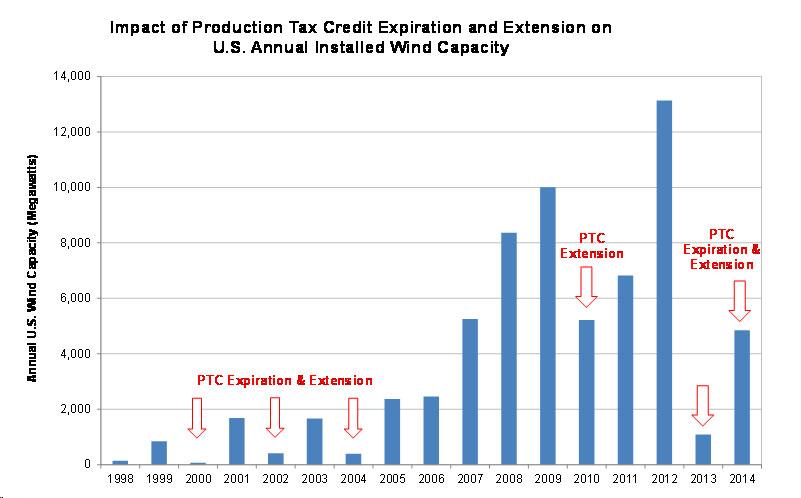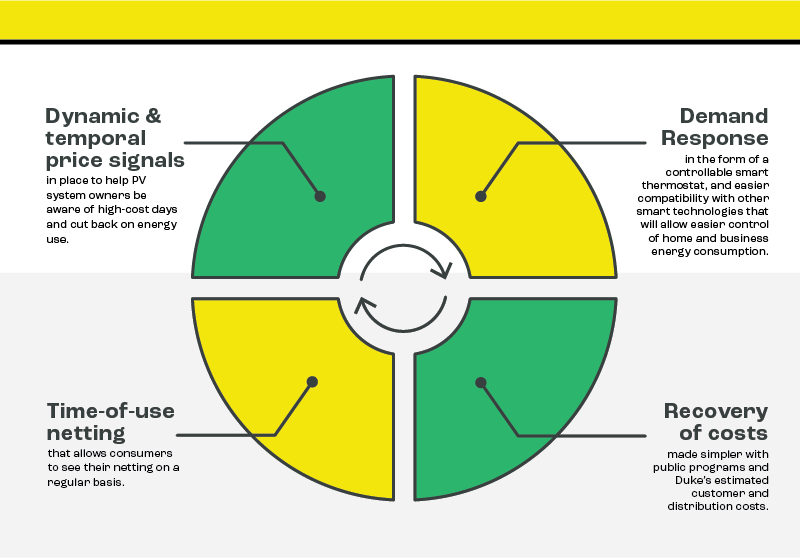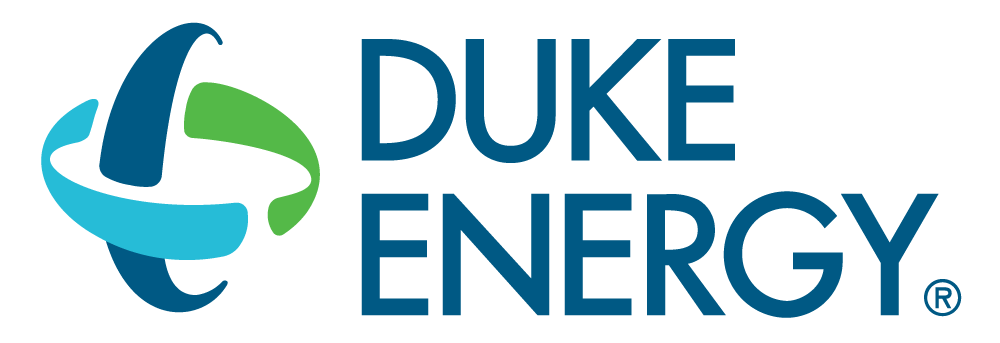Key North Carolina Commercial Solar Incentives & Rebates Available in 2024
A 2023 SEIA report shows that NC ranks 4th by cumulative solar capacity. Alongside this solar potential are several federal and local commercial solar incentives in North Carolina. Several renewable energy financing programs and net metering options are also available for NC businesses going solar. While the state pays below the national average on electricity costs, commercial properties still spend up to $1000/month, a significant cost on electric bills. Here, we cover the most critical commercial solar incentive in North Carolina and how much a solar system should cost and save if you are getting in today.
Commercial Solar Investment Tax Credit (ITC)
The Inflation Reduction Act enables commercial solar customers to take 30 percent of their solar investment as a credit against their federal tax liability. The ITC applies to the complete costs of commercial solar systems, and there is no cap on its value (though the customer must have a tax liability to benefit from a tax credit). This means that the Inflation Reduction Act allows businesses that invest in solar energy systems to get back 30% of the money spent on the system as a tax credit on federal taxes. However, while there is no limit on how much you can get back, you must owe taxes to benefit from the credit.
Key aspect of the ITC
This is a 10-year program and is subject to policy renewal. At the end of 2033, the 30% tax credit will drop back to 26%.
Commercial Production Tax Credit (PTC)

Production Tax Credit (PTC)
The Production Tax Credit (PTC) is another federal commercial solar incentive in NC. This incentive aims to foster the development of renewable energy sources, including solar power. Unlike the Investment Tax Credit (ITC), which provides a one-time credit based on the cost of installation, the PTC operates on a per kilowatt-hour (kWh) basis. It offers a tax credit for electricity generated by solar and other eligible renewable technologies during the initial ten years of a system’s operation. The PTC effectively reduces the federal income tax liability of the system’s owner based on the amount of electricity generated. Additionally, the credit is subject to annual adjustments for inflation, ensuring its value keeps pace with economic changes.
Modified Accelerated Cost-Recovery Systems (MACRS)
MACRS is a tax benefit that allows businesses to write off the cost of solar assets over a shorter period than the actual lifespan. North Carolina businesses can also take advantage of this federal commercial solar incentive. This special depreciation system allows businesses to depreciate 87% of the cost of their solar investment. The amount you can save through this depreciation depends on your current tax rate and typically amounts to about 20-25% of the total solar system cost, making this one of the best commercial solar incentives North Carolina businesses can take advantage of.
Request a Commercial Solar Proposal for Your IL Business
Net Metering in North Carolina 2024

Net-Metering in North Carolina
Net metering consists of measuring the surplus energy generated by your solar system and exchanging it with your utility for electricity credits or cash incentives. While the state of NC with Duke Energy has been operating in a 1:1(total retail value) credit for surplus energy, the State of North Carolina, with the help of Duke Energy, changed its net metering policy in 2023. This change was due to a 2017 energy legislation through House Bill 589, which went into effect on the 1st of October 2023. Here is what the new policy looks like.
Today, new solar customers have a new set of fees and can choose between a modified net metering rate or the new TOU rate. While the rate will differ for distinct systems primarily based on size and capacity, determining the best rate option will depend on energy demand, battery size, and system size. Businesses with large enough solar systems with output consistently greater than consumption can opt for a sell-all tariff instead of net metering. This allows you to send all power your solar system generates to the utility, and you are paid a flat rate per kWh produced.
Key Points from the new Policy:
- The current residential net metering rider (Rider NM) closed to new customers on September 30, 2023.
- Revised net metering riders (Residential Solar Choice – Rider RSC and Net Metering Bridge – Rider NMB) for residential customers became effective on October 1, 2023.
- Rider RSC introduces new charges and requires customers to be under a Time-Of-Use with a Critical Peak Pricing rate schedule. Net exports will be credited at the utility’s avoided cost rate.
- Rider NMB is similar to Rider RSC, but customers aren’t required to be under a Time-Of-Use with a Critical Peak Pricing rate schedule. It is limited, and customers can stay on it for up to 15 years.
- Existing net metered systems can continue under Rider NM until December 31, 2026, after which they’ll transition to Rider NMB.
How to Enroll for Net Metering in NC
Registering for Net Metering in North Carolina is straightforward. Contact your utility company and request the interconnection service application form for your proposed renewable energy facility. The application is reviewed and approved before a connection can be made. However, if you are working with a solar company like Commercial Solar, all this comes with your set-up package.
Duke’s Solar Interconnection Policies and Costs
Duke Energy, one of the largest utility companies in the US, has an interconnection process that varies based on project size. Customers must typically first submit a Pre-Application request with a non-refundable $300 fee. This is followed up by completing an online Interconnection Request signed by the customer requesting interconnection and a $100 non-refundable processing fee, including an electrical one-line diagram and insurance certification.
The NC State also requires new customers to file a Report of Proposed Construction with the North Carolina Utilities Commission and provide the Report’s docket number to Duke Energy. After these documents are submitted, Duke Energy will approve the installation of the solar panel system, at which time a disconnect switch will be installed.
After the system is installed and inspected, the customer must submit a Certification of Completion form, at which time Duke Energy gives the customer permission to operate, contingent on the Duke meter being set. But not to worry, as we have mentioned, Commercial Solar takes care of these tasks for you.
Additional Local Commercial Solar Incentives North Carolina: Incentives and Rebates
As the 4th highest solar state, there are also several commercial solar incentives North Carolina has to offer. Twice the number provided in most states. While some local incentives are tailored to specific locations, there are also some state-wide incentives you can take advantage of no matter where you are in North Carolina.
Duke Energy Solar Rebate Program

Duke Energy Solar Rebate Program
Though the biggest utility in the US, Duke Energy only offers its solar rebate program in NC. North Carolina businesses can take advantage of this rebate program as a commercial solar incentive. The program offers 30 cents per watt, up to $30,000 for commercial customers. However, getting into the program can be incredibly difficult due to the waiting list. You can get on the waiting list here.
USDA REAP Grant
The USDA Rural Energy for America Program (REAP) offers grants and loans to local businesses, such as rural farmers, for renewable energy projects, upgrades, and energy audits. Eligible businesses can get grants up to $1 million worth 50% of their project cost. To qualify, businesses must be agricultural producers or rural small businesses. Grants are awarded quarterly, and you can apply here.
Solar Potential in North Carolina: Incentives and Savings
Moving from the 16th position to the 4th in statewide solar energy in only a single year, NC has made significant strides towards clean energy and helping businesses take advantage.
Currently, the state averages statewide solar energy of 8.98%, just below California, Texas, and Florida, with its peak sun hours being one of the highest in the US. According to this SEIA report, the state currently has 8,648 MW installed, enough to power 1,075,491 homes and a solar investment worth over $11 billion. NC has also seen a reduction in solar prices by up to 42% in the last decade. With the numerous commercial solar incentives North Carolina has to offer, you can expect up to 80% offset in your solar investment in NC.
Understanding the Electric Utility Landscape and Rates in North Carolina
North Carolina has one of the cheapest electricity costs, with residents paying 27% lower than the national average, and this can be attributed to its diverse electricity portfolio. In the last two decades, NC has experienced a power shift. The state once relied on coal to generate 60% of its electricity, reflecting its prominence as a primary energy source.
Today, coal only accounts for 15.5%, followed by natural gas at 35%, nuclear at 32%, solar at 9%, hydro at 6%, and wind at 1%. Also, the economic dynamics linked to the diminishing expenses of solar energy presently position it as the most economically viable energy source, thereby rendering coal financially uncompetitive. This, coupled with notable disruptions in the supply chain and price fluctuations during the pandemic, has made coal considerably more expensive for consumers.
Impact on Solar Energy Decisions
The decision for commercial consumers to go solar in North Carolina can have a transformative impact, offering financial savings, environmental benefits, energy independence, long-term investment opportunities, and enhanced property value. By embracing solar energy, businesses can position themselves for a sustainable and prosperous future while contributing to the transition to a clean energy economy. Furthermore, by taking advantage of the various NC commercial incentives, you can spend next to nothing setting up a solar system and reap all the financial and environmental rewards.
Are Solar Panels Worth It in North Carolina?
Considering the state’s abundant sunlight according to ratings, the various commercial solar incentives North Carolina has to offer, decreasing costs, energy savings, environmental benefits, and a potential increase in property value, investing in solar panels in North Carolina can be a worthwhile and sustainable decision for homeowners and businesses alike.
However, it’s essential to thoroughly assess individual energy needs, financial considerations, and available incentives before making a decision. Speak with an expert today for an assessment and learn about other solar incentives that might be accessible to you.
Why choose Commercial-Solar.org for your commercial solar project in North Carolina?
With over two decades of experience meeting commercial solar needs and a track record of 40 successful projects across various sectors, Commercial Solar offers a comprehensive solution tailored to businesses looking to embrace solar energy. You will enjoy all of the following benefits:
- Elimination of Hurdles: We streamline the process, removing all obstacles and pain points associated with solar ownership.
- Maximizing Incentives: We leverage Minnesota’s commercial solar incentives to their fullest potential, ensuring optimal financial benefits for our clients.
- Cost-Free Installation: Our system ensures that solar installations are fully covered by incentives, requiring no out-of-pocket expenses from your business.
- Sustainable Cost Reduction: By harnessing solar power, businesses can achieve sustainable reductions in their electricity expenses over time.
- No Capital Expenditure: There’s no need for a capital expenditure budget for your company to invest in solar energy.
- Construction Payment Waived: Our clients don’t have to worry about making construction payments.
- Full Ownership: Unlike power purchase agreements (PPAs), where third parties often claim a significant portion of the benefits, our clients retain 100% ownership of their solar installations.
At Commercial-Solar.org, we’re committed to more than just installing solar panels; we’re dedicated to building Minnesota’s greener, more sustainable future. With our expertise catering to businesses of all sizes, from family-owned enterprises to Fortune 500 companies, and a team of seasoned professionals, we are prepared to support you at every stage of your transition to solar power. Reach out to us today to explore how integrating solar energy can revolutionize your business while contributing significantly to Minnesota’s ecological and sustainable development goals. Schedule an in-person consultation to tailor solar solutions to your property portfolio today.
Other Information |
|
| Areas Serving: | Alamance County, Alexander County, Alleghany County, Anson County, Ashe County, Avery County, Beaufort County, Bertie County, Bladen County, Brunswick County, Buncombe County, Burke County, Cabarrus County, Caldwell County, Camden County, Carteret County, Caswell County, Catawba County, Chatham County, Cherokee County, Chowan County, Clay County, Cleveland County, Columbus County, Craven County, Cumberland County, Currituck County, Dare County, Davidson County, Davie County, Duplin County, Durham County, Edgecombe County, Forsyth County, Franklin County, Gaston County, Gates County, Graham County, Granville County, Greene County, Guilford County, Halifax County, Harnett County, Haywood County, Henderson County, Hertford County, Hoke County, Hyde County, Iredell County, Jackson County, Johnston County, Jones County, Lee County, Lenoir County, Lincoln County, Macon County, Madison County, Martin County, McDowell County, Mecklenburg County, Mitchell County, Montgomery County, Moore County, Nash County, New Hanover County, Northampton County, Onslow County, Orange County, Pamlico County, Pasquotank County, Pender County, Perquimans County, Person County, Pitt County, Polk County, Randolph County, Richmond County, Robeson County, Rockingham County, Rowan County, Rutherford County, Sampson County, Scotland County. Stanly County. Stokes County, Surry County, Swain County, Transylvania County, Tyrrell County, Union County, Vance County, Wake County, Warren County, Washington County, Watauga County, Wayne County, Wilkes County, Wilson County, Yadkin County, Yancey County |
|---|---|
| Services |
Commercial Solar Installation
|
| Company Logo: |  |